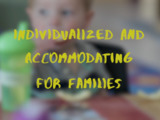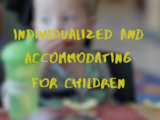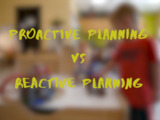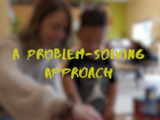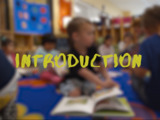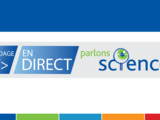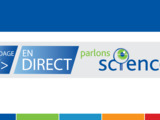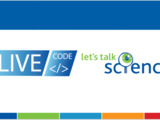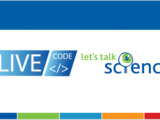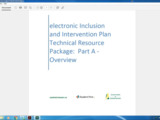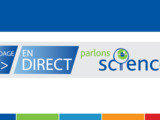Professional Resources:
Videos are listed chronologically by date added, beginning with the most recent
Individualized and Accommodating (Families): Key Consideration #3b
This video explores how educators can view work with families to build a trusting mutual relationship as educators and families each bring their own expertise to the partnership. Together they can create an environment where accommodations can be viewed as a universal aspect of learning: Everyon...
PROFESSIONAL Video
Public Video
Individualized and Accommodating (Children): Key Consideration #3a
This video invites educators to get to know each individual child as unique. It includes learning about their strengths and preferences, learning about their style of learning and self-expression, learning about their greater context, and learning about the challenges they face. Accommodations ...
PROFESSIONAL Video
Public Video
Proactive Planning vs. Reactive Planning: Key Consideration #2
This video invites educators to take a proactive approach. Being proactive implies predicting challenges in advance, planning our responses, and providing support rather than reactive remediation. Proactivity changes how we view environments, materials, routines, and transitions. But more than...
PROFESSIONAL Video
Public Video
A Problem Solving Approach: Key Consideration #1
This video invites educators to approach challenges as opportunities for growing and learning. This view of problem-solving includes many different players and groups, and it envisions ways for them to work together. Educators who adopt a problem-solving mindset will transition from reacting ...
PROFESSIONAL Video
Public Video
Introduction: Fostering Inclusive Early Learning
This eight-part video series on fostering inclusive practices in early learning, features Todd Wanerman and explores five key considerations for inclusive practices in early learning programs.
You are welcome to view each video in order or as separate modules. This video series was made possib...
PROFESSIONAL Video
Public Video
Le raisonnement algorithmique: de la 4e a 6e année
Durant cette émission de 45 minutes, les élèves exploreront la compétence en pensée computationnelle qu'est le raisonnement algorithmique.Le raisonnement algorithmique est la compétence nécessaire à la création d'un algorithme, soit une série de règles ou d'instructions ordonnées, logiques et pré...
PROFESSIONAL Video
Le raisonnement algorithmique: de la maternelle à la 3e année
Durant cette émission de 30 minutes, les élèves exploreront la compétence en pensée computationnelle qu'est le raisonnement algorithmique. Le raisonnement algorithmique est la compétence nécessaire à la création d'un algorithme, soit une série de règles ou d'instructions ordonnées, logiques et pr...
PROFESSIONAL Video
Algorithmic Thinking: Grades 4-6
In this 45-minute broadcast, students will explore the computational thinking skill of algorithmic thinking.Algorithmic thinking is the skill involved in creating an algorithm. An algorithm is a series of ordered, logical and unambiguous rules or instructions necessary to solve a problem or achie...
PROFESSIONAL Video
Algorithmic Thinking: Kindergarten-Grade 3
In this 30-minute broadcast, students will explore the computational thinking skill of algorithmic thinking.Algorithmic thinking is the skill involved in creating an algorithm. An algorithm is a series of ordered, logical and unambiguous rules or instructions necessary to solve a problem or achie...
PROFESSIONAL Video
Overview of the electronic Inclusion and Intervention Plan (eIIP)
PROFESSIONAL Video
Public Video
La reconnaissance de régularités: de la 4e a 6e année
Dans cette émission de 45 minutes, les élèves exploreront la compétence en pensée computationnelle de la reconnaissance de régularités.La reconnaissance de régularités se produit lorsque vous pouvez identifier des similarités. Lorsque vous identifiez celles-ci, vous pouvez créer des règles qui pe...
PROFESSIONAL Video

